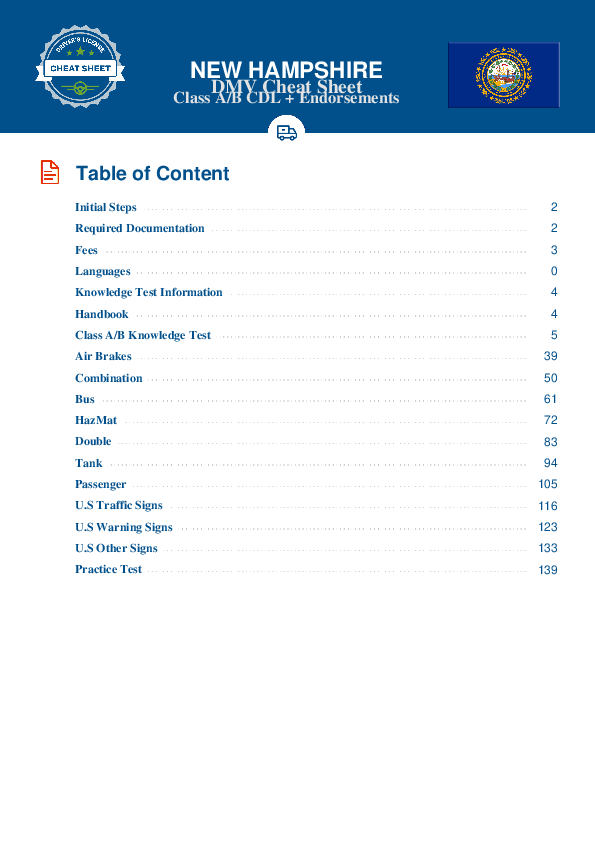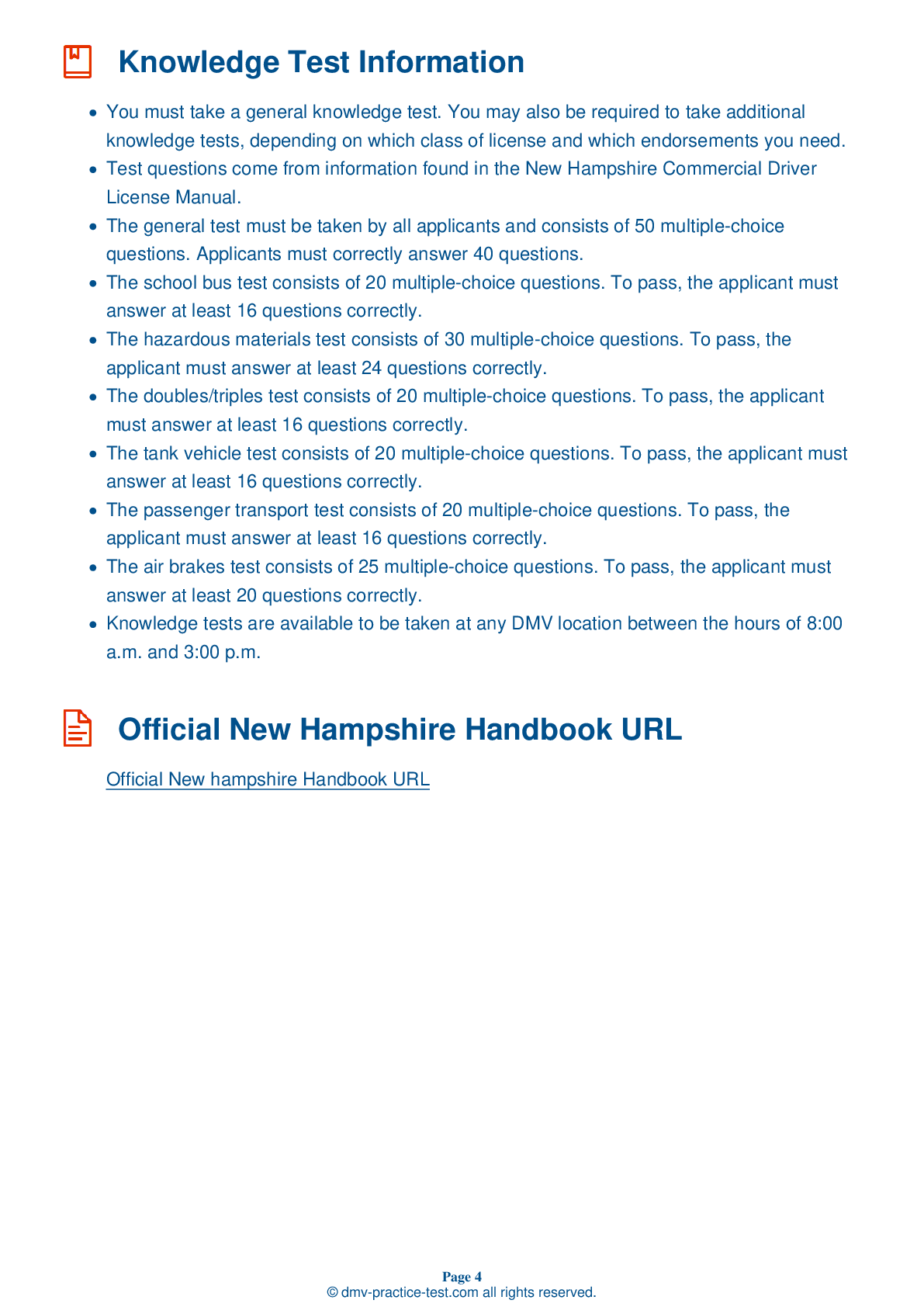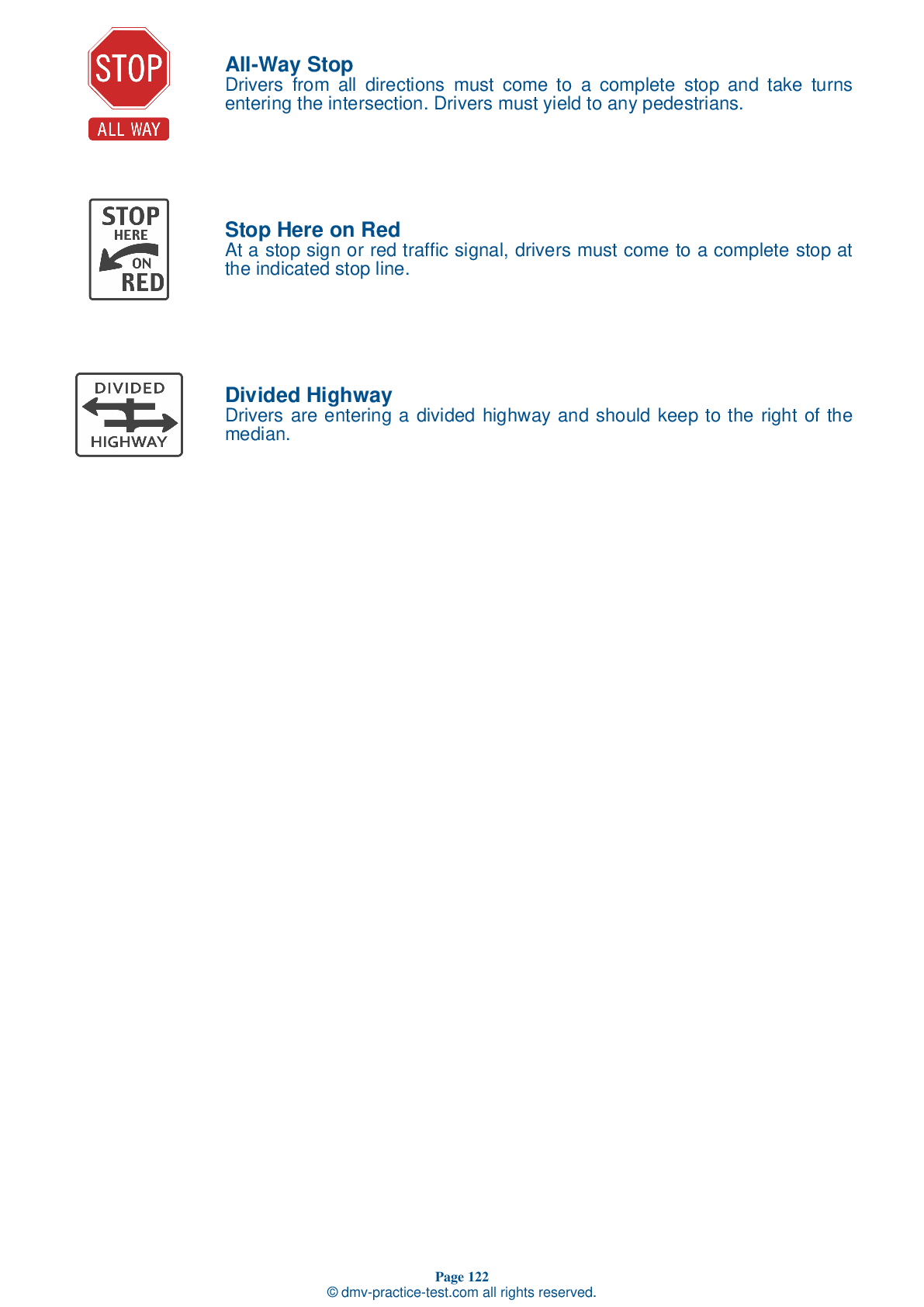Class A Driving Test | New Hampshire 2026 #1
Train for FREE online with our New Hampshire class A license test. The official exam test consists of several obligatory parts, with all of them checking your knowledge of different blocks of road rules. If you need to obtain a NH CDL class A permit in 2026, practice as much as possible. Free sample tests published on our website will help you check and improve your knowledge and boost your grades. Please bear in mind that CDL class A requirements may vary from state to state.
1 . If you are experiencing an engine fire, you should:
In the event of an engine fire, you should turn off the engine as soon as possible. Do not open the hood unless absolutely necessary. Using a fire extinguisher, shoot foam through the louvers or radiator, or from the vehicle’s underside. If you are unsure of how to treat a fire, wait for firefighters to arrive.
2 . When inspecting engine compartment belts during the vehicle inspection test:
When checking the engine compartment during the vehicle inspection test, you must check the power steering, water pump, alternator, and air compressor belts. In addition to cracks and frays, you should check the belts for snugness, allowing up to three-quarters of an inch of play at the center of each belt. If any of these items are not belt-driven, you must identify them and ensure that their components are operating properly, are not damaged or leaking, and are mounted securely.
3 . A cargo van carrying a light load is usually:
The added weight of a heavy load will make a vehicle sit lower than usual. A vehicle will often be taller when carrying a light load than when carrying a heavy load. If your vehicle fits under an overpass while carrying a full load, it is not guaranteed that it will fit under the same overpass if it is empty.
4 . Using an Anti-Lock Braking System (ABS):
An Anti-Lock Braking System (ABS) helps prevent wheel lockup during hard braking. While it provides better control, it does not necessarily shorten a vehicle's stopping distance.
5 . On a curve, the posted speed limit:
The posted speed limit on a curve may be safe to be taken by cars, but can still be too fast to be taken by larger vehicles, such as trucks. An operator driving their truck at the posted limit on a curve could cause their vehicle to tip over.
6 . When trying to avoid a hazard:
Stopping is not always the most effective response to a hazard. You can usually turn out of the path of a hazard more quickly than you can come to a complete stop. However, swerving is not without its hazards, as it may result in a rollover in a vehicle that is either top-heavy or pulling multiple trailers.
7 . Which of the following is a sign of a potentially drunk driver?
Warning signs that a driver may be impaired include that they are having trouble staying in their lane, they are having trouble maintaining an appropriate driving speed, or they are stopping without a clear reason.
See the exact questions that will be on the 2026 New Hampshire DMV exam.
99.2% of people who use the cheat sheet pass the FIRST TIME
Lillian MCcranie explains how our CDL study guide was helpful in passing the exam and recommends it to everyone.
Cameron tells us how he purchased the CDL exam, and found it to be a useful tool which helped him pass the exam and find a job.



